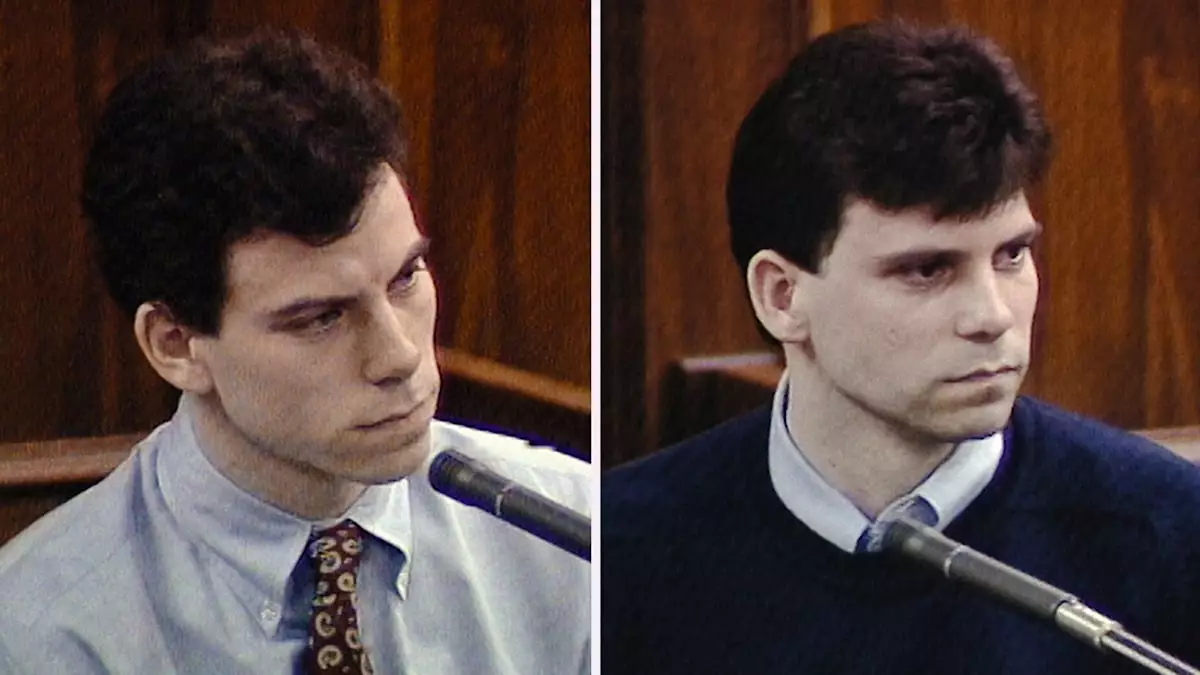In a story intertwined with themes of trauma, redemption, and complex family dynamics, Lyle and Erik Menendez find themselves at the center of renewed discussions regarding their long-standing incarceration. It has been over three decades since the brothers were convicted for the brutal murder of their parents, José and Kitty Menendez, and with that conviction, they were condemned to life behind bars without the possibility of parole. Today, as the dialogue regarding their case shifts toward a more sympathetic interpretation, family members and advocates are raising their voices, demanding a closer examination of the circumstances surrounding the murders and the resulting legal decisions.
Recent media portrayals, particularly in the form of a Netflix documentary series, have reignited interest in the brothers’ fate. The Menendez case was not merely about a double homicide but was enshrined in a complex backdrop involving allegations of long-term abuse, mental health struggles, and the manifestation of traumatic experiences. Amid the echoes of their trial, which featured intense public scrutiny and sensationalism, a growing acknowledgment of psychological trauma has emerged. In this renewed context, the brothers’ legal team, led by their attorney Mark Geragos, is pursuing a habeas corpus claim that aims to shed light on why their imprisonment may not have been lawfully justified.
At a striking press conference held in Los Angeles on October 16, the Menendez family came together in a demonstration of solidarity. About 20 relatives, including José’s niece, Ana María Beralt, gathered to advocate for the brothers’ release and to press for a resentencing that takes into account their overlooked suffering. During the event, family members emphasized that both Lyle and Erik have been further victimized by a legal system that failed to grasp the full extent of their mental and emotional anguish.
Ana María’s heartfelt remarks struck a chord: she reflected on the heavy toll the murders took on their family dynamic and eloquently articulated the tragic misunderstanding of Lyle and Erik as cold-blooded killers rather than as victims of their own history. She noted that, had their case been evaluated under contemporary understandings of trauma and abuse, the outcomes would likely differ significantly. In a poignant reminder, she conveyed, “Their continued incarceration serves no rehabilitative purpose, it’s time to recognize the injustice they suffered and allow them the second chance they deserve.”
As social awareness surrounding issues of mental health grows, the Menendez brothers’ plight stands as a stark reminder of how past judicial attitudes may be inadequate in addressing the complexities of human experiences. Advocates for the brothers are highlighting the necessity of re-evaluating the justice system’s approach toward victims of abuse, particularly young individuals who have suffered significant psychological trauma.
The brothers, despite their circumstances, have reportedly used their time in prison to better themselves and assist others is essential to understand. They have transformed their experiences of pain into a commitment to help fellow inmates, showing remarkable resilience and humanity that contrasts sharply with the narrative originally portrayed at their trial. As such, many, including Ana María and other family members, see their case as emblematic of broader flaws in the criminal justice system.
Public sentiment regarding the Menendez brothers has gradually evolved, with many advocating for a more compassionate approach that reconciles past mistakes with the need for justice. This shift has not gone unnoticed by prominent figures within the legal system, including law enforcement officials who have reportedly submitted supportive statements regarding the brothers’ potential for rehabilitation. Furthermore, as negotiations for resentencing continue, it is apparent that a change in public opinion may wield significant influence.
The Menendez brothers’ case is more than just a stark portrayal of family tragedy; it reflects the changing landscape of societal understanding toward those who have endured profound trauma. As families come together to seek justice and redeem their loved ones, there remains a glimmer of hope that Lyle and Erik’s next chapter may encompass healing and restoration rather than continued suffering. The legal avenue for change might be opening, suggesting that perhaps there is still time for understanding and compassion in the face of complex human experiences.

